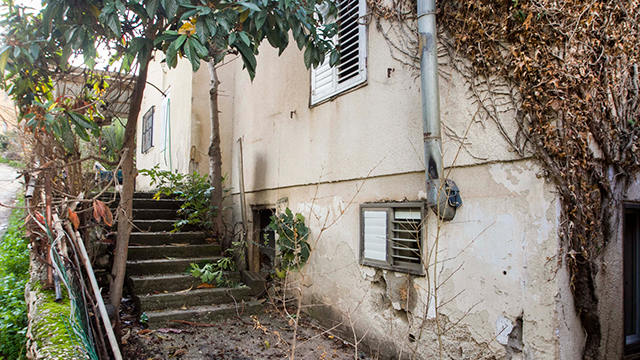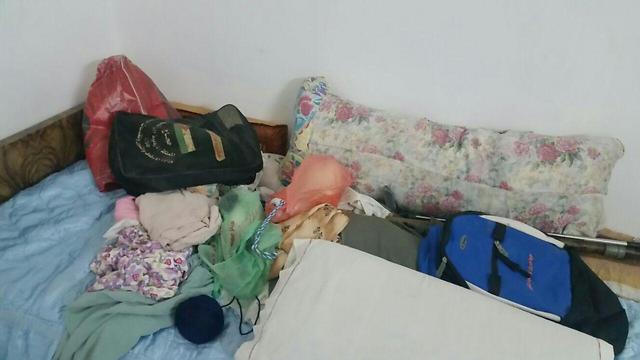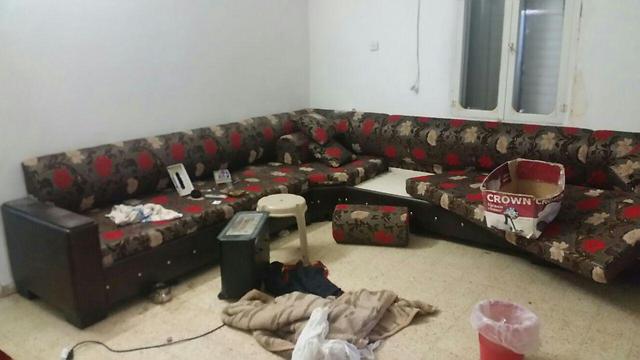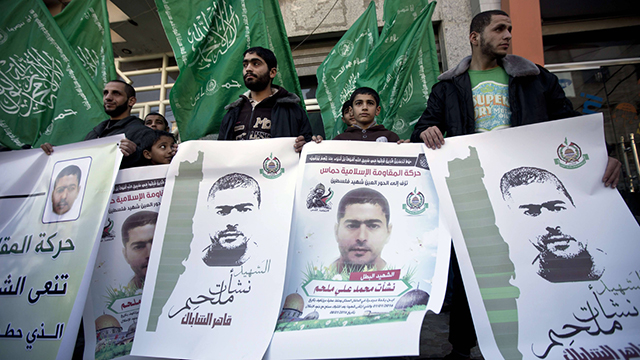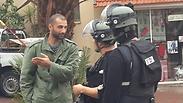
'They knew the terrorist was here, but didn't want to snitch'
Nashat Melhem, the suspected shooter who killed two people at a central Tel Aviv bar and a taxi driver in the north of the city, managed to stay hidden in Arara for nearly a week before being found and killed by security forces.
A day after the week-long manhunt for Nashat Melhem ended with his death in Arara, details began to emerge about where he hid during that time and who may have helped him.
Alongside the operation to catch Melhem, who murdered three people in Tel Aviv, security forces also arrested several area residents on Friday who they suspected of helping him to evade capture.
Residents and family members on Saturday morning declined to go into detail, but individuals in the al-Daharat neighborhood – where Melhem had been hiding – and police officials know that he received assistance, especially from family members, since he arrived in Wadi Ara on the day of the attack.

"He slept in a different place each night. They brought him food and looked after him," a source said.
"Nashat grew up in the al-Daharat neighborhood and had good relations with everyone who lives there," said a resident. "Many people knew that he was here, but it was difficult for them to snitch and inform the police.
"His family members also didn't want to be responsible for his arrest and preferred to protect him until the last moment," the resident added.
Police officials admit that continuing to search for Melhem in Tel Aviv even after it became clear that he had fled north was a mistake.
"It was clear that he was in (the north), but we waited until we knew exactly where," an official said. "According to our estimate he got to Arara with the aid of one of the residents."
The police are currently holding Melhem's body, and a small mourning tent has been set up at the family's home. A relative said: "This incident has harmed the Arab population politically. There are people who will make this into a nationalistic incident, but that wasn't the case."
The family has decided to hold a small funeral. "After an eight-day, 24-hour-a-day saga, the family is exhausted. I also ask that the Arab population understand that this is a limited affair," the relative added.
Details regarding one of Melhem's hideouts in Arara, located 400 meters from where he was eventually shot dead, also emerged on Saturday morning.
Melhem left behind him plates, cigarette butts and clothes strewn across the floor.
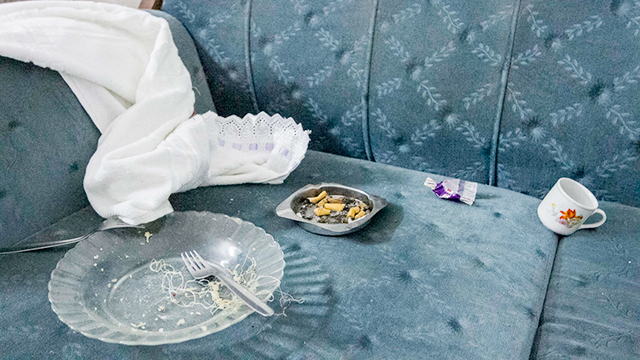
Elsewhere on Saturday, Melhem was praised as a hero in the Gaza Strip, with his picture being displayed at a Hamas demonstration mourning his death. A family from Khan Younis even named their son, who was born on Friday, after Nashat Melhem.
Hamas had publicly praised Melhem on Friday, as they have done other terrorists who have been killed during the current wave of terror.
Hassan Shaalan, Ron Ben Yishai and Omri Efraim contributed to this report.










